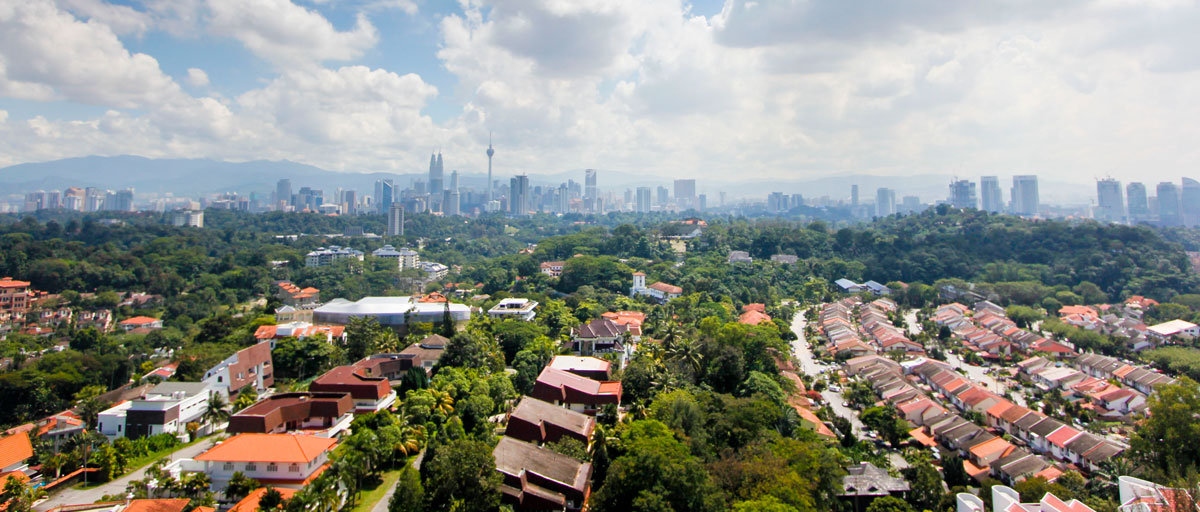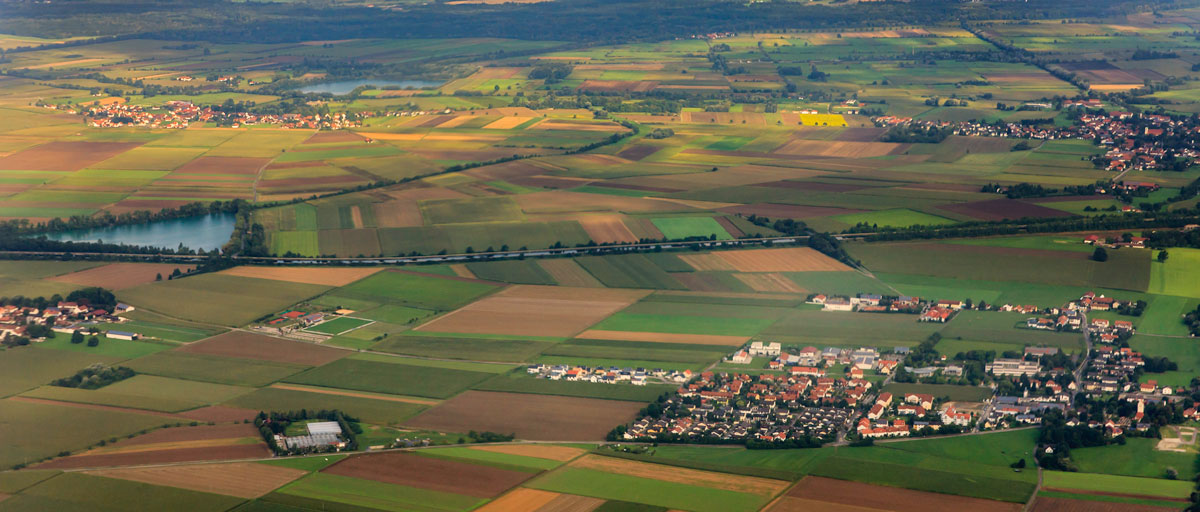
A new study shows that urban expansion will increasingly be eating away at the world’s prime croplands. One-fourth of this global cropland loss will occur in China. Photo: Chensiyuan/C.C 4.0
Bildtext får vara max två rader text. Hela texten ska högerjusteras om den bara ska innehålla fotobyline! Photo: B. Christensen/Azote
SUSTAINABILITY OF CITIES
Lost in urbanisation
Urban expansion will result in a 1.8-2.4% loss of global croplands by 2030, says paper in PNAS
• Study in PNAS shows that urban expansion will increasingly be eating away at the world’s prime croplands between year 2000 and year 2030
• About 80% of this global cropland loss from urban expansion is predicted to take place in Asia and Africa.
• Sustainability of urban areas cannot be considered in isolation from the sustainability of resources and livelihoods elsewhere
Urbanisation continues at breakneck speed and it is predicted to eat away 300.000 km2 of the world’s prime croplands between 2000 and 2030, according to a study published in the journal PNAS. The acronym stands for Proceedings of the National Academy of Sciences of the United States of America, and the study is part of a special feature on Sustainability in an Urbanizing Planet.
“The effects of urbanisation on arable land, and what it means for global food security, has been a forgotten issue,” says centre researcher Stephan Barthel who is one of the authors behind the new study.
Barthel, who is also a Lecturer at University of Gävle in Sweden, has worked together with colleagues from Germany, New Zealand, USA and Austria to do the global analysis and write the paper.
First detailed study
That urban expansion often occurs on croplands is nothing new of course. There is, however, too little research being done on exactly how and where future city growth will affect the world’s cultivated areas. This is why Barthel and his co-authors decided to analyse spatially explicit projections of urban expansion together with detailed datasets on croplands and crop yields around the world.
Their results show that expansion of cities will entail a 1.8-2.4% loss of global croplands by 2030, with most of it happening in Asia and Africa. Notably, one-fourth of this global cropland loss will occur in China. And even worse, in both Asia and Africa much of the cultivated area that will be lost is more than twice as productive as their national averages.
Asia will experience the highest absolute loss in cropland while African countries will experience the highest percentage loss of cropland
Stephan Barthel, co-author
It is, however, important to note that cities are not only concrete deserts. Urban agriculture is known to be significant in many cities. To compensate for this Barthel and colleagues accounted for urban agriculture by overlaying maps of urban areas and croplands for the year 2000, and found that 36% of all urban areas are utilized for crop production. In the analysis they assumed this percentage to prevail when city expansion continues, but they also accounted for regional variation (e.g. 41% in Asia and 32% in Africa).
How to compensate for the loss?
The analysis of the international team of researchers also reveals that the croplands that are likely to be lost were responsible for as much as 3-4% of global crop production in 2000. Altogether, the urban expansion up to year 2030 is expected to take place on cropland that is 1.77 times more productive than the global average.
Moreover, this loss of arable land is likely to be accompanied by other unsustainable things, which threatens health, livelihoods and the environment, in particular in the Global South. Better governance of urbanisation thus emerges as an increasingly important area for securing livelihoods in the developing agrarian economies around the world.
“As most of the cropland expected to be converted is more productive than the global average, efforts will need to compensate for that loss, whether by intensifying remaining cropland or by expanding agricultural production into new areas,” the authors conclude.
Compensating is, however, easier said than done in many regions. In Southern Asia, for example, suitable land tends to already be under intense, multi-cropping cultivation. In addition, climate change is expected to decrease the amount of suitable croplands throughout Africa, and Southern and Southeast Asia.
Urban responsibilities
When it comes to policy implications and recommendations, the authors call for increased responsibility of urban regions for motivating and implementing solutions that take into account their impacts on croplands.
Strategies and policies to effectively and sustainably steer patterns of urban expansion will be critical for preserving cropland, they say. It is high time to realise that the sustainability of urban areas cannot be considered in isolation from the sustainability of resources and livelihoods elsewhere.
Methodology
The study used a dataset called EarthStat for global crop yields in 2000 to calculate the productivity of the displaced land. Yields of the 16 most important crops were converted to calories and weighted with area harvested. This was also supplement with an analysis of the four staple crops (maize, rice, soybean, wheat) and three cash crops (cacao, oil palm, sugarcane). The impact of urban area expansion was assessed by intersecting three distinct urbanization projections for the year 2030 with the cropland dataset for the year 2000.
Bren d’Amour, C. B., Reitsma, F., Baiocchi, G., Barthel, S., Güneralp, B., Erb, K-H., Haberl, H., Creutzig, F., and Seto, K C. (2017). Future Urban Land Expansion and Implications for Global Croplands. Proceedings of the National Academy of Sciences of the United States of America
Stephan Barthel studies environmental issues in metropolitan landscapes. He uses methods and theories form the natural and the social sciences, as well as from the humanities. He has been part of developing the discourse on urban social-ecological systems over the years.








